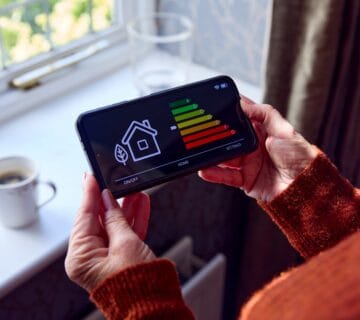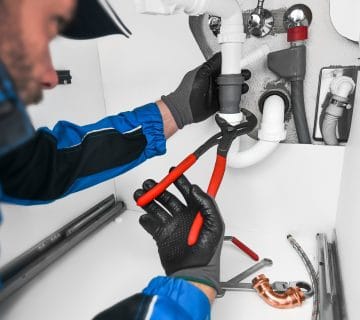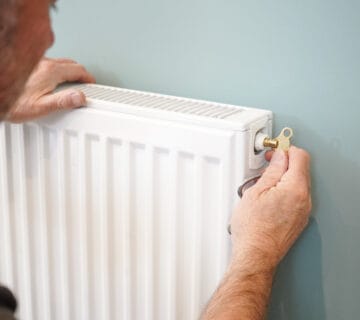10 things to look out for when viewing a house
Viewing a house is equally as exciting as it is stressful. Deciding what layouts work for you, room sizes, kitchen and bathroom design, and the size of the garden are all the usual things you’ll be thinking about as you walk around a potential property you are looking to buy. But there are some aspects of a property search that you may not even know to look out for in the first place. Let’s get you confidently looking for your next home.
What is the parking like?
Depending on the area you are looking to purchase a home in, you may have one or two cars (if buying a home with a partner) to think about where to park. Is there adequate space on the driveway, or is it on-road parking? Is there space for visitors, and are there any yellow lines around the property preventing off-road parking? Factor in what aspects are important to you and what may be important for the future.
Are there any signs of damp or mould?
Damp and mould can cause a lot of (expensive) problems in a home. When viewing a house, look to see if the walls are wet or if there is any staining. Is there a damp smell or any peeling wallpaper or rotting skirting boards? Ensure you check all rooms and any storage spaces where damp may be hiding.
Find out what the tax bracket would be
Finding out the tax bracket in the area you are looking at is important to know what you will be paying out each month. You should be able to find this out on the gov.uk website or from your estate agent.
Have a good look at the plumbing
Plumbing in a house can be an expensive fix, so make sure you have a good look at the fittings like the shower, bath (if there is one), toilet, and sinks. Find out how the water pressure is by turning on the taps and flushing the toilets to ensure everything is working. A home services report is a good way to determine the condition and make recommendations for improvement.
What condition is the boiler in?
Find out about the heating system in the house. What make is the boiler? When was it last serviced? How old is the boiler? Ascertaining the condition of the boiler is worth the time. You don’t want the first expense when you move into your new home to be a new boiler.
Do the lights work, and are there enough power sockets?
When walking around, turn the lights on and have a look at the sockets to ensure there are no safety risks, like exposed wires. Another aspect to consider is how many power sockets there are and where they are located. When it comes to moving in, you’ll want to know you can plug in everything you need to where you want it. Alternatively, you may need to consider getting an electrician in to fit some new sockets.
Check all windows
Check to see if there is condensation build up inside the glass. This may be a sign that they will need to replace it sooner rather than later, as the double glazing is faulty and no longer working efficiently. Are there any cracks around the frame, or can you feel a draft coming from around the edges? Or is the glass single-glazed? This will let out a lot of heat from the home.
How easy is the attic to access?
The attic is probably one of the last things you would think to look at when viewing a house, but you may not want to make any assumptions. Is there adequate insulation? You don’t want to check that everything else is energy efficient and then let all of the heat out of the roof! Is there enough storage space for all of your Christmas decorations? Is there the possibility of converting it into additional rooms? Finding out as much about your attic at your viewing can save a lot of unanswered questions along the line.
What condition is the roof in?
With the roof being another costly aspect of the home to repair or replace, gauging the condition beforehand can save you a lot of hassle. Ask when the roof was installed; have a look at the condition of the gutters and the roofing material; are all things to do while viewing a property.
Examine the exterior
While you’re outside looking at the roof, make sure you are also taking a look at the exterior of the house. Check that there are no big cracks or damage to any of the brickwork. A survey will also help with this.
Remember to make the most of your estate agent and ask them questions so you can be as informed as possible about your property purchase. Most importantly, outside all of the practical aspects to look at in a potential new home, do you see yourself living there?
If you want full peace of mind when making the big financial decision of buying your next home, Home Service Reports can help you determine the condition of your boiler, heating system, gas appliances, plumbing, and electrical installation. We have fully qualified gas safe and NAPIT engineers nationwide to give you peace of mind with your home buying decision.






